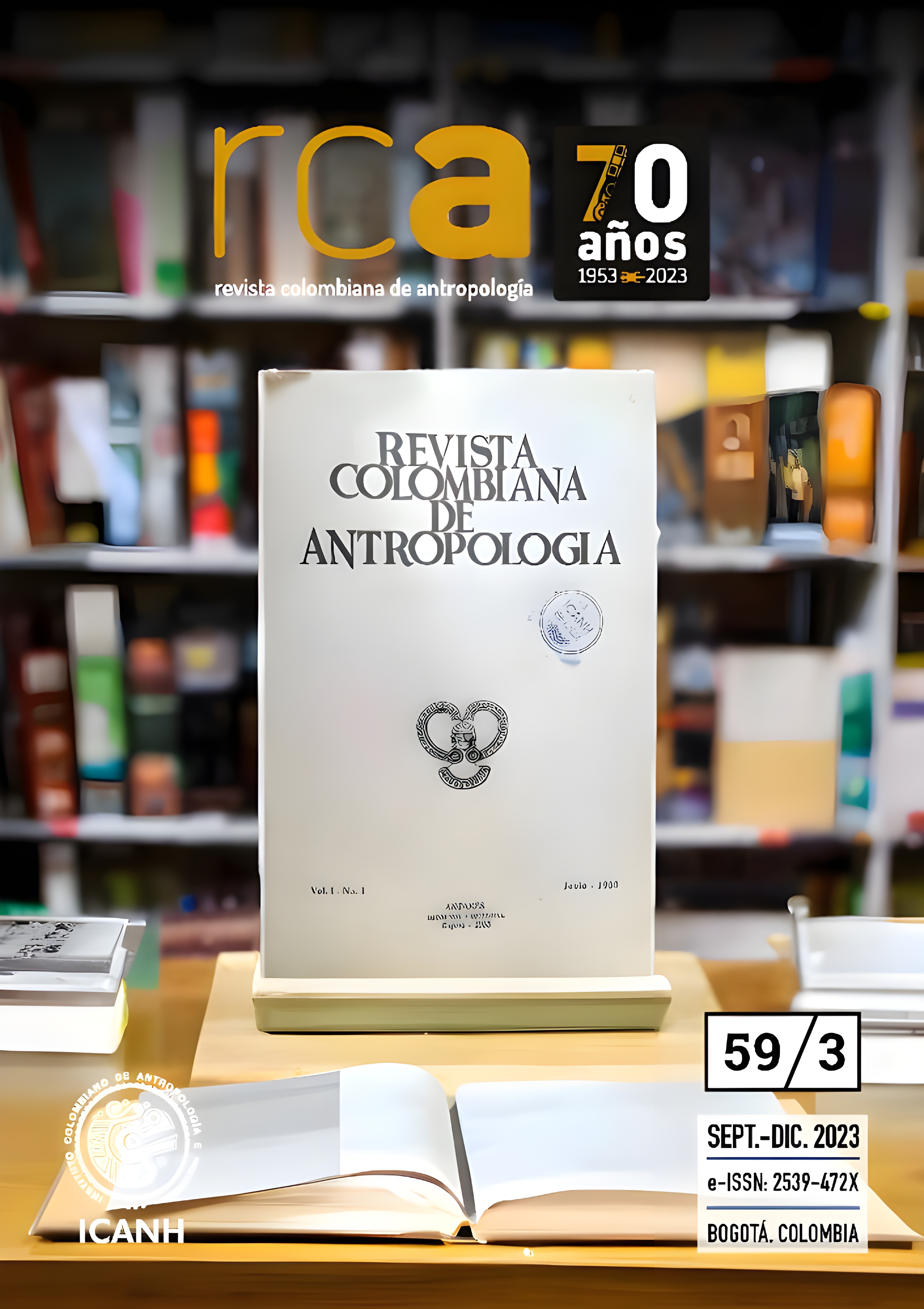Commentary on the Article “‘Por eso uno sabe hoy pero no sabe mañana’. Ghostly Presence of Violence and Daily Life in a Colombian Town”, by Gabriel Ruiz
DOI:
https://doi.org/10.22380/2539472X.2665Abstract
Downloads
References
Derrida, Jacques. 2012. Specters of Marx: The State of the Debt, the Work of Mourning and the New International. Nueva York; Londres: Routledge.
Fisher, Mark. 2012. “What is Hauntology?”. Film Quarterly 66 (1): 16-24. https://doi.org/10.1525/fq.2012.66.1.16
Haraway, Donna. 2020. Seguir con el problema: generar parentesco en el Chthuluceno. Bilbao: Consonni.
Lincoln, Martha Lincoln y Bruce Lincoln. 2015. “Toward a Critical Hauntology: Bare Afterlife and the Ghosts of Ba Chúc”. Comparative Studies in Society and History 57 (1): 191-220. https://doi.org/10.1017/S0010417514000644
Orrantia, Juan. 2012. “Where the Air Feels Heavy: Boredom and the Textures of the Aftermath”. Visual Anthropology Review 28 (1): 50-69. https://doi.org/10.1111/j.1548-7458.2012.01110.x
Quiceno Toro, Natalia. 2008. “Puesta en escena, silencios y momentos del testimonio. El trabajo de campo en contextos de violencia”. Estudios Políticos 33: 181-208. https://doi.org/10.17533/udea.espo.1947
Rodríguez, Clemencia. 2011. Citizens’ Media Against Armed Conflict: Disrupting Violence in Colombia. Minneapolis, MI: University of Minnesota Press.
Tsing, Anna. 2015. The Mushroom at the End of the World: On the Possibility of Life in Capitalism Ruins. Princeton: Princeton University Press.
Downloads
Published
How to Cite
Issue
Section
License

This work is licensed under a Creative Commons Attribution-NonCommercial-NoDerivatives 4.0 International License.




















